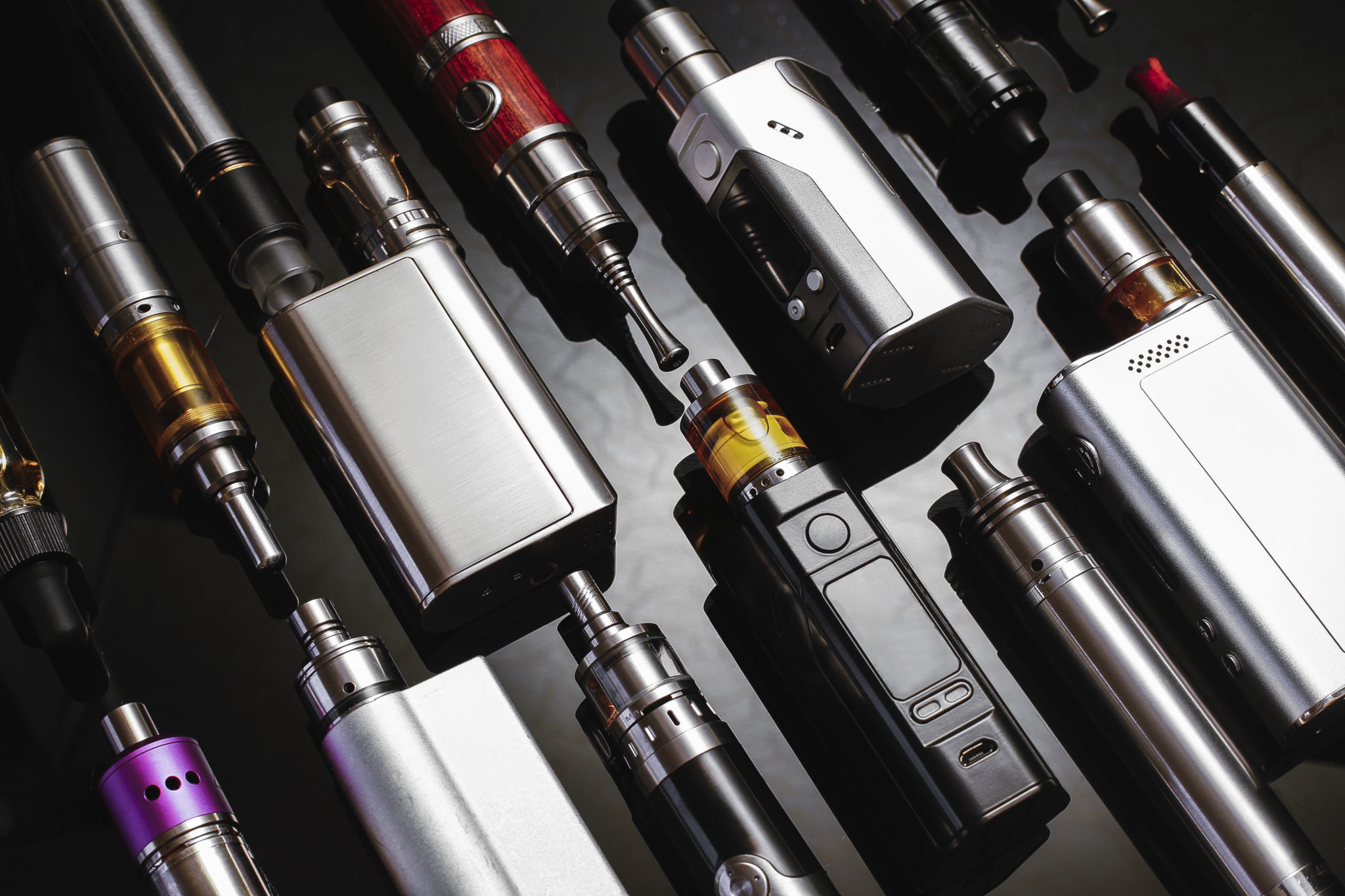Introduction
The United States Postal Service (USPS) plays a crucial role in the transportation and delivery of various goods, including vape products. In recent times, the shipping regulations surrounding the mailing of vape products have undergone significant changes. In this comprehensive guide, we will explore the final ruling released by the USPS on shipping vape products, understanding the implications for businesses, consumers, and the vaping industry as a whole.
Background on USPS Regulations
Shipping regulations are essential components of any industry, ensuring the safe and lawful transportation of products. In the context of vape products, which include electronic cigarettes, vape pens, e-liquids, and related accessories, regulations have been subject to continuous evaluation and adjustment to address safety concerns and changing market dynamics.
The PACT Act and Its Impact
The Prevent All Cigarette Trafficking (PACT) Act is a federal law enacted to regulate the mailing of cigarettes and smokeless tobacco products. In December 2020, the PACT Act was amended to include electronic nicotine delivery systems (ENDS), commonly referred to as vape products. This amendment expanded the scope of the PACT Act to cover a broader range of products within the vaping industry.
Under the PACT Act, businesses engaged in the online sale and shipment of vape products are required to comply with specific regulations, including:
- Registration with the ATF: Businesses must register with the Bureau of Alcohol, Tobacco, Firearms, and Explosives (ATF) to engage in the online sale of vape products.
- Verification of Age: Strict age verification processes must be implemented to ensure that the sale of vape products is limited to individuals who meet the legal age requirements.
- Record-Keeping Requirements: Businesses are obligated to maintain detailed records of transactions, including customer information, product details, and shipping records.
- Tax Compliance: The PACT Act imposes tax collection and remittance responsibilities on businesses selling vape products. This includes state and local taxes applicable to the sale of such products.
USPS Final Rule on Shipping Vape Products
In response to the amendments made to the PACT Act, the USPS released its final rule on the mailing of vape products. This ruling, which came into effect on March 27, 2021, introduced several key changes to the shipping regulations for vape products through the USPS.
Prohibition of Mailing Vape Products
The USPS final ruling explicitly prohibits the mailing of vape products, including electronic nicotine delivery systems (ENDS) and their components. This prohibition extends to all domestic and international shipments.
Definition of Vape Products
The final rule provides a comprehensive definition of vape products, covering a range of items associated with electronic nicotine delivery systems. This includes devices, components, e-liquids, and any accessories used in the operation of vape products.
Exception for Business-to-Business Shipments
While the rule prohibits the mailing of vape products to consumers, there is an exception for business-to-business shipments. Vape businesses can continue to use USPS services for shipments between businesses, provided they comply with the regulations outlined in the PACT Act.
Age Verification for Business-to-Business Shipments
Even in business-to-business shipments, age verification measures must be implemented to ensure that the products are not being sold to individuals who do not meet the legal age requirements.
Record-Keeping Requirements
Businesses engaged in business-to-business shipments of vape products are required to maintain detailed records of transactions. This includes records of the age verification process, product details, and other relevant information.
Implications for Businesses
The final ruling by the USPS has significant implications for businesses operating within the vaping industry, particularly those involved in the online sale and distribution of vape products. Key considerations for businesses include
Adaptation to Alternative Shipping Services
With the USPS prohibiting the mailing of vape products to consumers, businesses must explore alternative shipping carriers and services to fulfill customer orders. Private carriers and specialized age-verified shipping services may become the primary options for businesses.
Enhanced Age Verification Processes
Businesses need to strengthen their age verification processes to ensure compliance with the PACT Act. Implementing robust age verification measures for both business-to-business and business-to-consumer transactions is essential.
Record-Keeping Compliance
Strict adherence to record-keeping requirements is crucial for businesses. Maintaining accurate and detailed records of transactions, age verification processes, and other relevant information is necessary to demonstrate compliance with the PACT Act.
Tax Compliance
Businesses must continue to comply with tax collection and remittance responsibilities as outlined in the PACT Act. This includes staying informed about state and local tax regulations applicable to the sale of vape products.
Educating Customers
Businesses should communicate the changes in shipping regulations to their customers and provide guidance on the new procedures in place for the fulfillment of vape product orders. Clear communication can help manage customer expectations and prevent disruptions.
Consumer Impact
The final ruling on shipping vape products by the USPS also has implications for consumers within the vaping community. Key considerations for consumers include:
Changes in Shipping Practices
Consumers may experience changes in the shipping practices of online vape retailers. Businesses are likely to transition to alternative carriers for the delivery of vape products, and consumers should be aware of any adjustments in shipping times and costs.
Age Verification Requirements
Consumers may encounter more stringent age verification requirements when purchasing vape products online. The implementation of robust age verification processes is a key component of complying with the PACT Act.
Awareness of Regulations
Consumers should stay informed about the evolving regulations surrounding the vaping industry, including changes in shipping practices. Awareness of regulatory updates helps consumers make informed choices and understand the limitations imposed on the mailing of vape products.
Support for Local Businesses
With changes in shipping regulations, consumers may consider supporting local brick-and-mortar vape shops as an alternative to online purchases. Local businesses may offer in-person transactions without the shipping restrictions imposed by the USPS.
Industry Responses and Adaptation
In response to the USPS final ruling, businesses within the vaping industry have been actively adapting to the new regulatory landscape. Some notable industry responses and adaptation strategies include:
Transition to Alternative Carriers
Many vape businesses have transitioned to alternative shipping carriers that allow for the fulfillment of business-to-business orders while complying with age verification requirements.
Implementation of Robust Age Verification Systems
Businesses have implemented or strengthened age verification systems to ensure compliance with the PACT Act. This may involve the use of third-party age verification services to enhance the accuracy and reliability of age verification processes.
Communication with Customers
Vape retailers have communicated changes in shipping practices to their customers, providing clear information on the new procedures in place for the fulfillment of orders. Transparent communication helps manage customer expectations and fosters understanding of the regulatory changes.
Exploration of Local Markets
Some businesses have explored opportunities in local markets, emphasizing in-person transactions through brick-and-mortar vape shops. This allows businesses to navigate the challenges associated with shipping restrictions.
Legal Considerations and Compliance
Navigating the regulatory landscape surrounding the shipping of vape products requires a comprehensive understanding of legal considerations and compliance requirements. Key legal considerations include:
PACT Act Compliance
Businesses must ensure strict compliance with the requirements outlined in the PACT Act, including registration with the ATF, implementation of age verification processes, and maintenance of detailed records.
State and Local Regulations
Businesses should stay informed about state and local regulations pertaining to the sale and distribution of vape products. State-specific requirements may vary, and compliance with local regulations is essential.
Legal Consultation
Seeking legal consultation is advisable for businesses seeking to navigate the complex legal landscape associated with the vaping industry. Legal professionals with expertise in regulatory compliance can provide guidance tailored to the specific needs of vape businesses.
Consumer Education
Educating consumers about the legal considerations and compliance efforts undertaken by businesses fosters transparency and builds trust. Clear communication can help consumers understand the regulatory constraints and appreciate the commitment to compliance.
Conclusion
The final ruling by the USPS on shipping vape products marks a significant shift in the regulatory landscape for businesses and consumers within the vaping industry. As the industry adapts to these changes, it is essential for businesses to prioritize compliance with the PACT Act, explore alternative shipping options, and communicate effectively with their customers. Consumers, in turn, should stay informed about regulatory updates, be aware of changes in shipping practices, and consider supporting local businesses within the vaping community. Navigating the evolving regulations surrounding the mailing of vape products requires collaboration between businesses, regulatory authorities, and consumers to ensure a responsible and compliant industry landscape.
- Usps Releases Final Ruling On Shipping Vape Products - November 9, 2023
- Benefits of K2 - November 9, 2023
- IMBUE CBD TOPICALS By Imbue Botanicals-Comprehensive Evaluation of the Finest IMBUE CBD Topical Products - September 12, 2023




